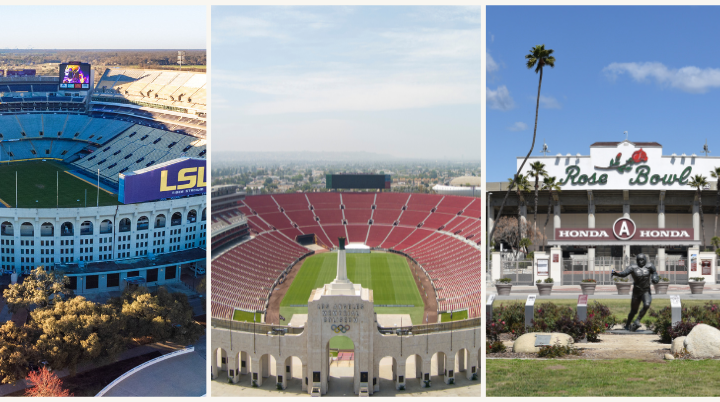US Representatives Garret Graves and Mark Pocan have announced the launch of the Historic Stadium Caucus. The caucus will bring together a bipartisan group of Congressmembers to work on preserving the legacy and protecting the integrity of venues across America.
The mission of the Caucus is to assist representatives of historic stadiums – and those who are passionate about safeguarding iconic venues – in ensuring the stadiums can stay up-to-date with the latest technological advancements and security measures, as well as environmental practices, all while preserving their rich historical legacy.
The caucus also intends to enhance their capabilities, so they are able to continue to host world-class sporting events and concerts.
Old becomes new
Some of the key areas that the Historic Stadium Caucus will focus on are security and safety, technological upgrades, and funding for updates to existing infrastructure.
With growing concerns about safety and security in public spaces, the caucus will focus on how the historic stadiums are able to implement cutting-edge security measures without compromising the historical character or footprint of the stadiums.
Given the amount of fans each venue welcomes annually, the Historic Stadium Caucus will help focus attention on the fact that these stadiums – many of which are over or nearing 100 years old – are in need of technological upgrades to ensure that these iconic venues can meet local, state and federal safety standards.
As with many historic buildings, ensuring their continued functionality and longevity requires investments in their infrastructure.
“When Tiger fans walk into Death Valley on Saturday nights, they do more than watch a football game – they walk into a 99-year-old local icon that supports our regional economy,” said Graves, who represents Louisiana’s sixth congressional district.
Historic and relevant
The caucus will bring attention to historic stadiums which were among the first major athletic venues in the United States, looking to protect historic venues which are seen as economic catalysts for their local economies, as well as emergency preparedness centers for local, county and state agencies.
“Historic stadiums, like Camp Randall Stadium where the University of Wisconsin-Madison Badgers play, serve a vital role in our communities,” said Pocan, who represents Wisconsin’s second congressional district. “Not only are they where memories are made and young people get inspired to play sports, but they’re often hubs of economic activity,” added Pocan.
Among the stadiums the caucus includes is the University of Pennsylvania’s Franklin Field, which opened in 1895 and is the oldest remaining football stadium in the United States.
“We believe the launch of the caucus will be a crucial step forward in protecting these iconic venues from being overshadowed and will undoubtedly work towards the appropriate preservation and infrastructure necessities that can continue to energize their existence,” said Jens Weiden, GM and CEO of Rose Bowl Stadium.
It also mentions Rose Bowl Stadium, built in 1922, Los Angeles Memorial Coliseum, Camp Randall Stadium, and Tiger Stadium as historically important venues which provide important economic stimulus to their respective regions.
“Historic stadiums, such as Tiger Stadium at LSU, play an important role in the environment that makes college athletics special. The game day traditions in iconic venues around the country are unique and are worthy of discussion,” said LSU Athletic Director Scott Woodward, adding, “I appreciate the Historic Stadium Caucus co-chairs, Garret Graves and Mark Pocan, for recognizing the need for healthy dialogue around the protection of historic stadiums.”
Widespread support
At the launch, eighteen of the most iconic college football venues are committed to participating in the Historic Stadium Caucus, the full list of which can be viewed here.
“We believe the launch of the caucus will be a crucial step forward in protecting these iconic venues from being overshadowed and will undoubtedly work towards the appropriate preservation and infrastructure necessities that can continue to energize their existence,” said Jens Weiden, GM and CEO of Rose Bowl Stadium.
The Historic Stadium Caucus’ co-chairs, Reps. Graves and Pocan, will circulate a “Dear Colleague” letter to ask other members of Congress to join, and move forward discussing strategies to preserve the historic stadiums across America.





